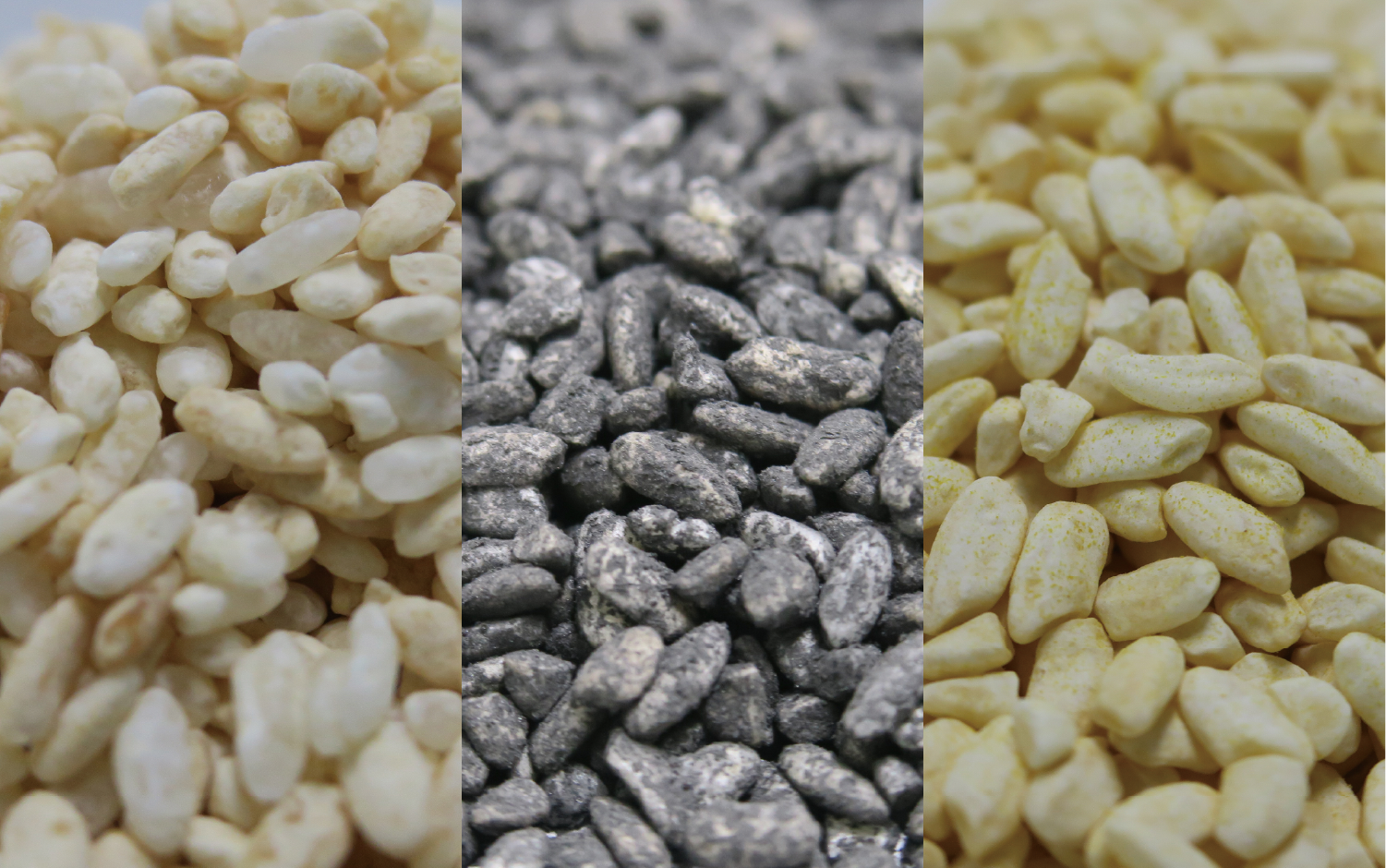
Amylase breaks down starch into sugar, and protease breaks down protein into amino acids. Each enzyme is standardized for its active state.
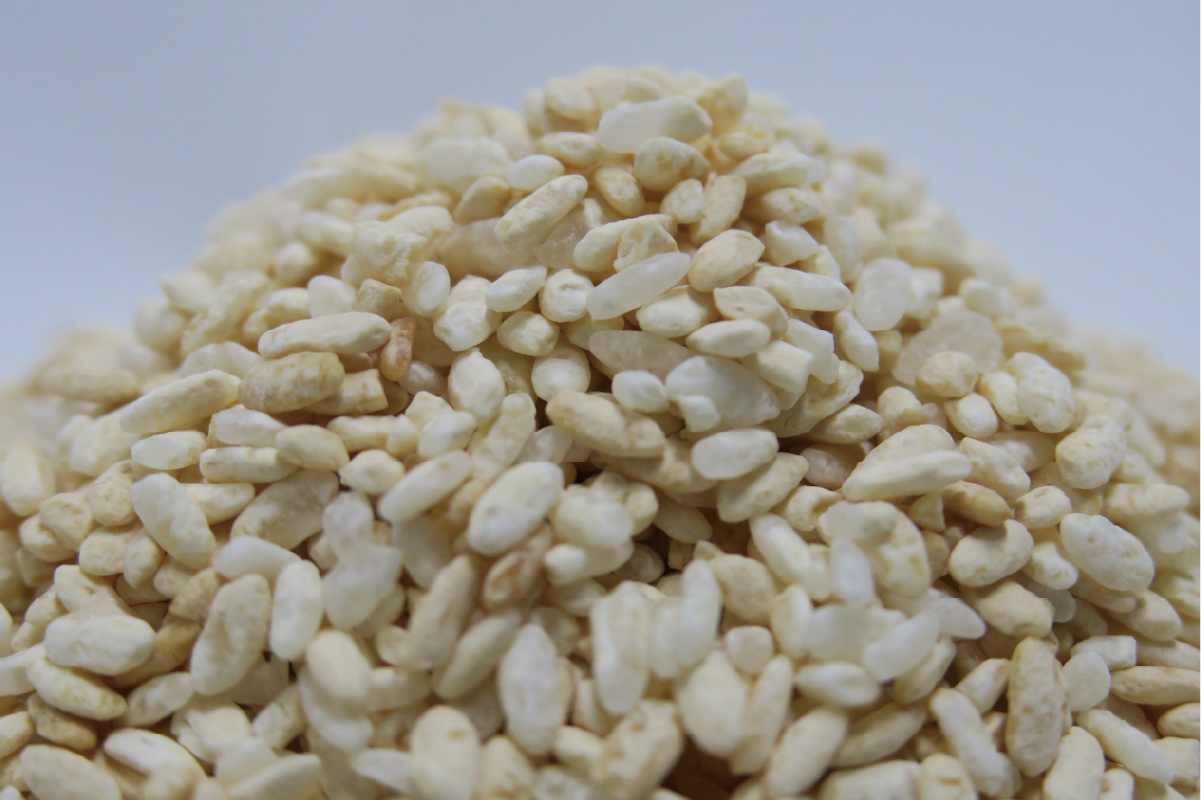
White Koji Mold
This type of koji mold has enzymes that are resistant to acidity and produce citric acid during fermentation. It is used to make mild-flavored shochu and fruity sake, similar to wine.
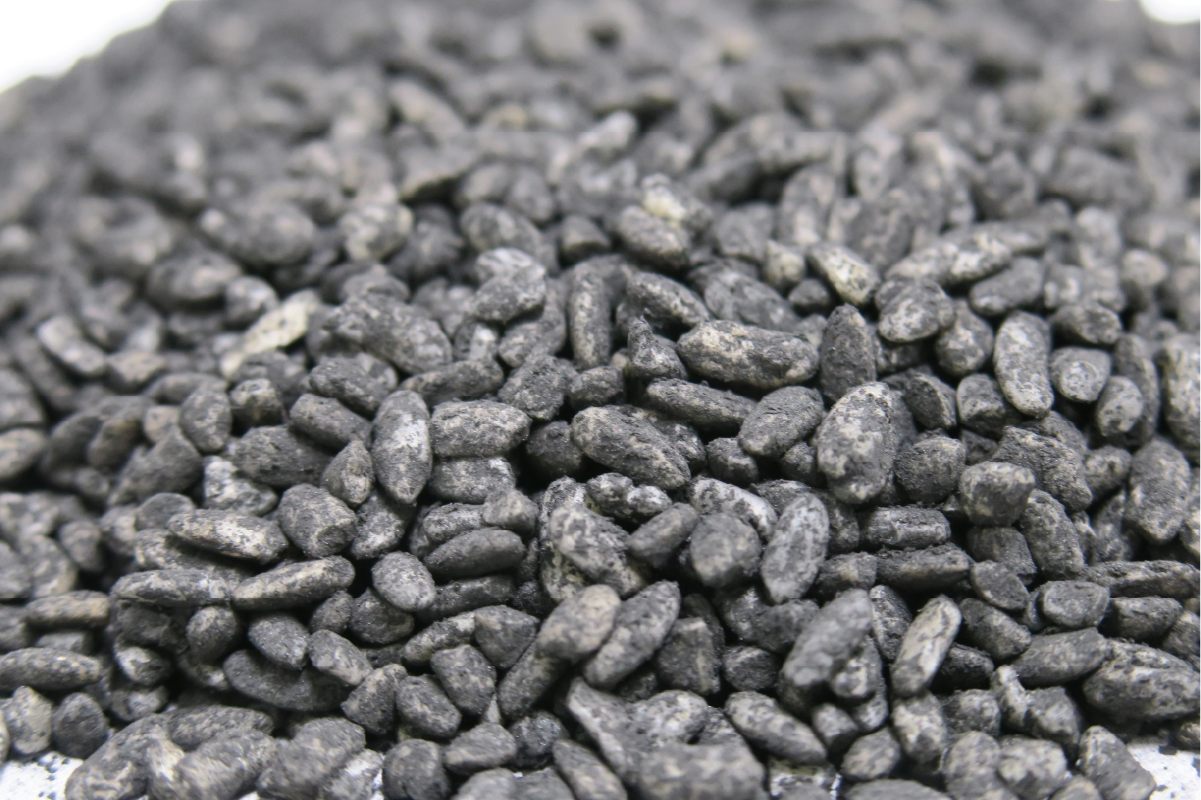
Black koji mold
This koji mold, which produces citric acid during fermentation and has enzymes that are resistant to acidity, is used to make awamori and rich-flavored shochu.
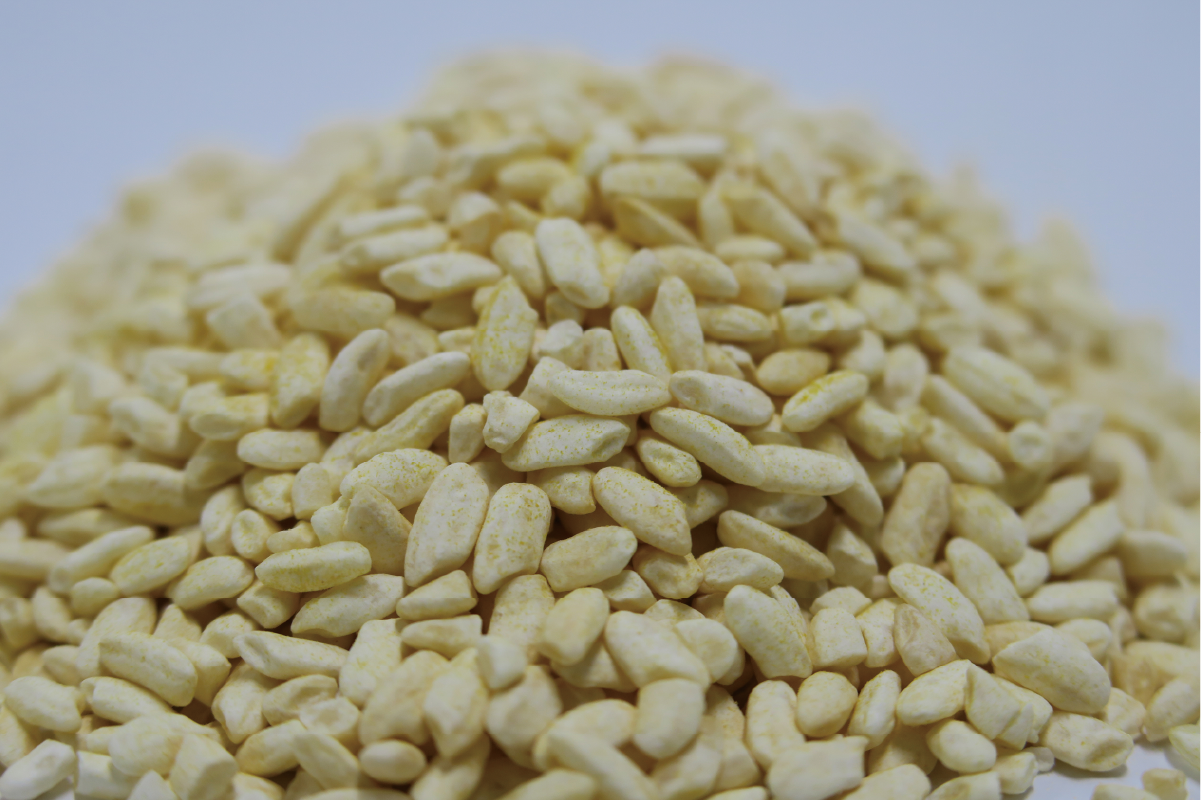
Yellow Koji Mold
This type of koji mold possesses highly effective enzymes at neutral pH levels and is used to produce miso, soy sauce, and sake, which has a rich flavor and a vibrant aroma.
Three types of koji mold with different properties are used, each cultivated separately: white, black, and yellow.
These molds contain active enzymes that are active in a wide range of conditions, from acidic to neutral.
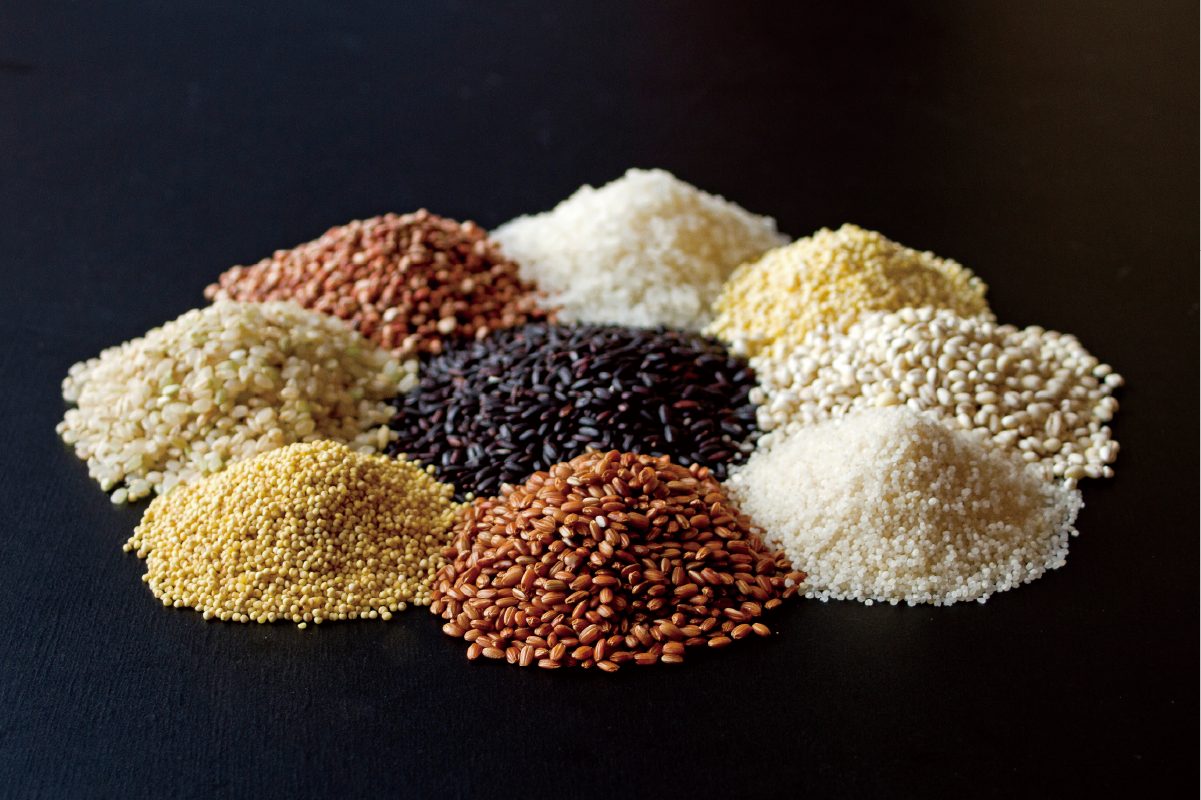
We use a unique blend of nine grains that are carefully selected for nutritional balance. This koji-fermented grain food does not require allergen labeling.
*White rice, barley, red rice, brown rice, foxtail millet, common millet, black rice, sorghum, and Japanese barnyard millet
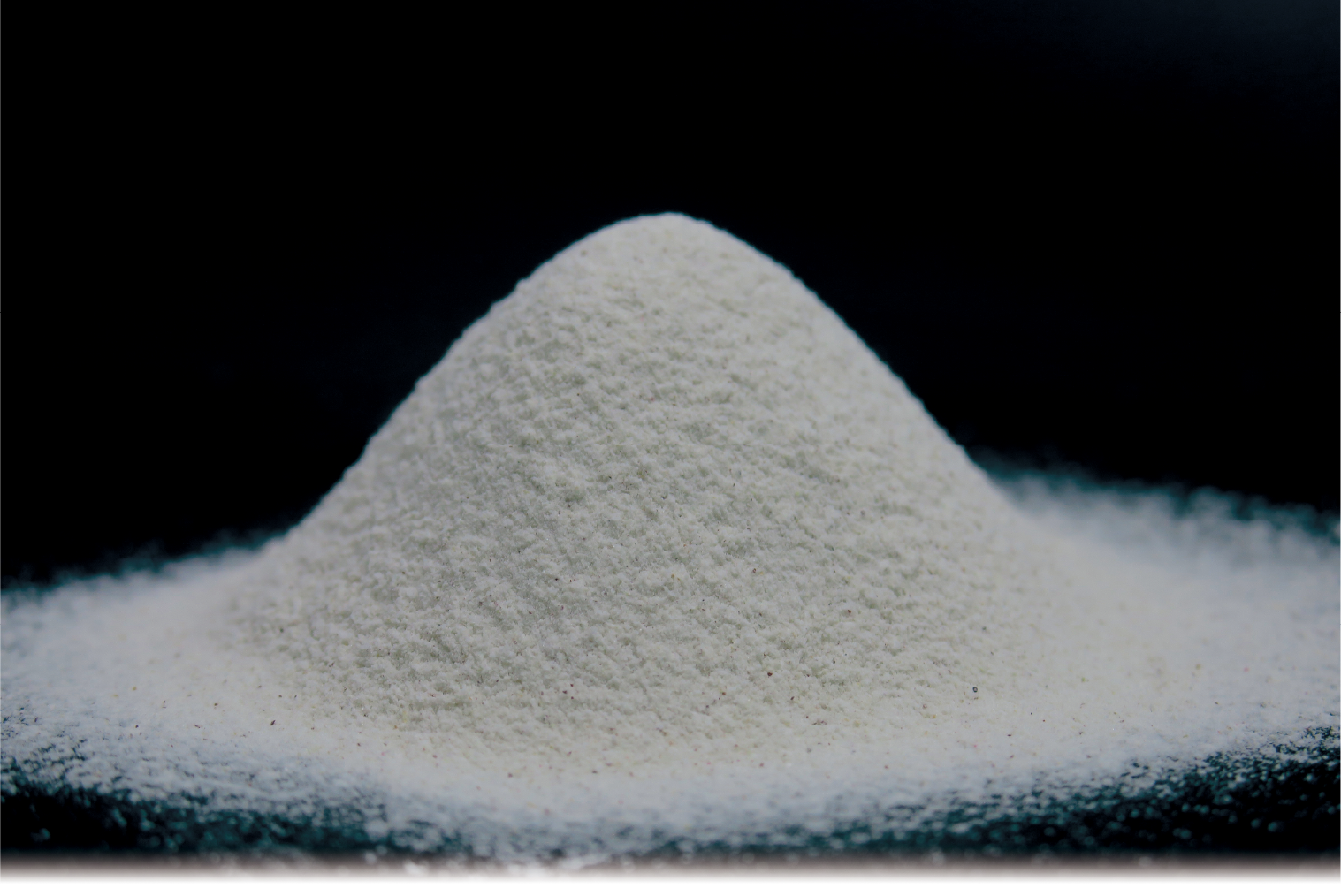
This grain koji powder has been standardized for two enzyme activities: acid protease and amylase.
The activity of acid protease, a proteolytic enzyme, is expected to promote the breakdown of protein in the body and aid its absorption.
Japan